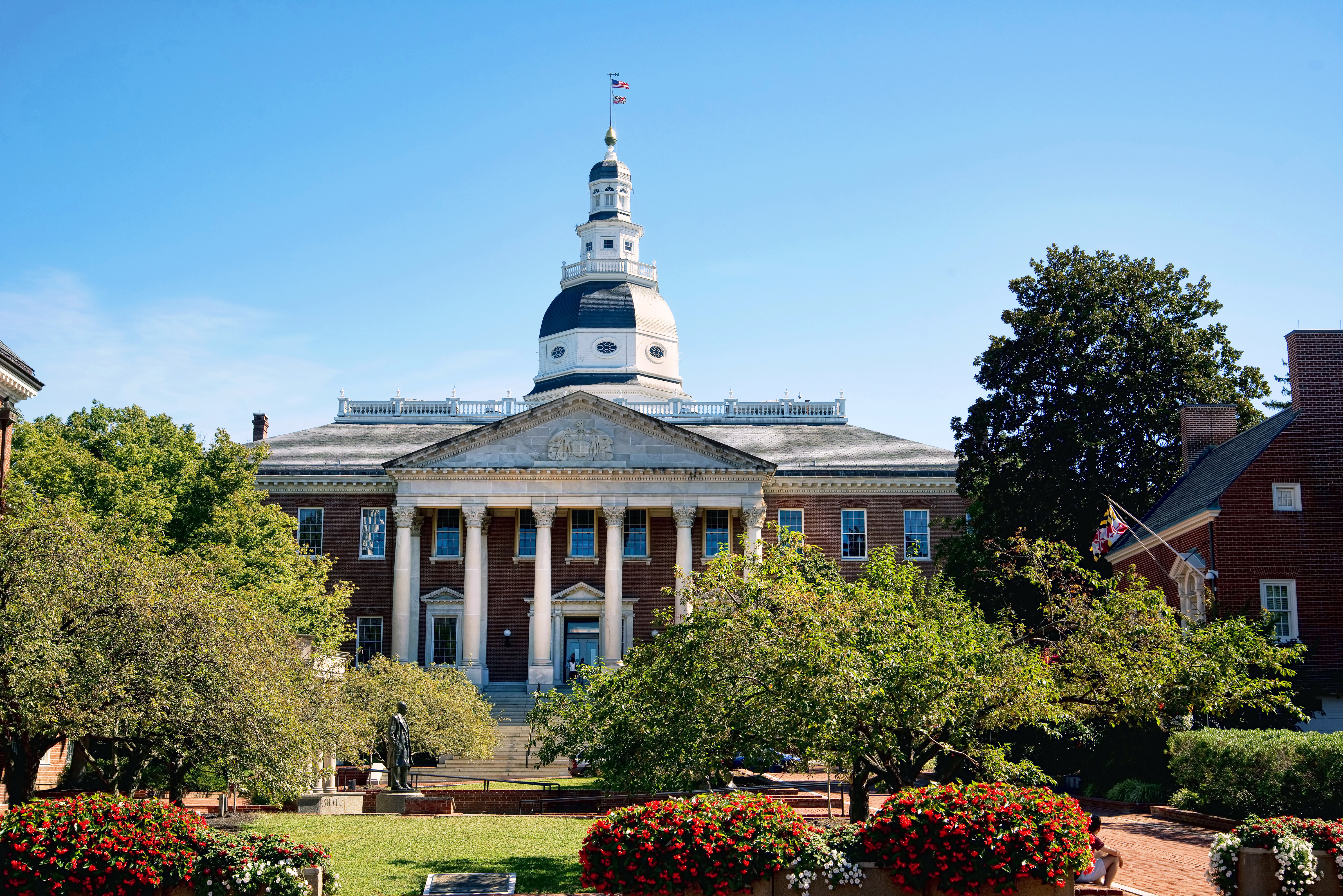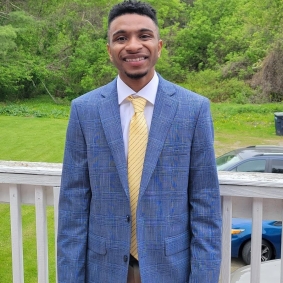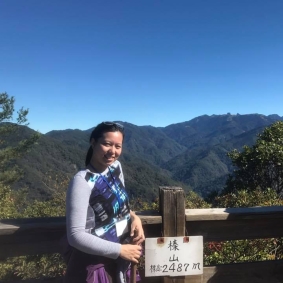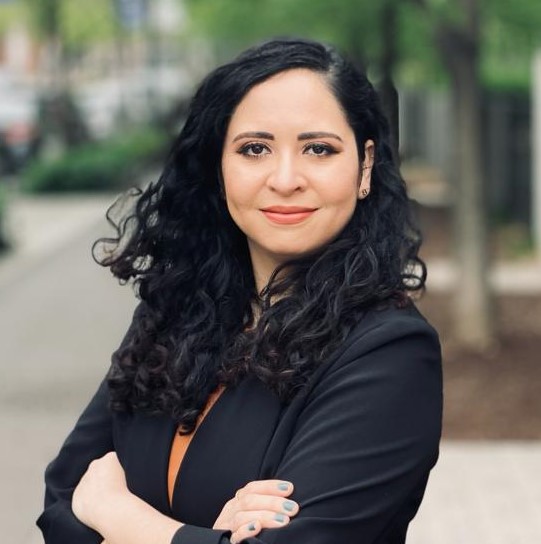Knauss legislative fellowships in Congress help build careers — and they're fun and educational. See our video and fact sheet for details.
Maryland Law and Policy Fellowship

Maryland Sea Grant (MDSG) and the Agriculture Law Education Initiative (ALEI) are excited to invite applications for a one-year legal fellowship. Please come join our dynamic team of legal experts and scientists to work at the exciting interface of law, policy, and environmental research. This one year fellowship has the possibility for a second year renewal in mutual agreement between the fellow, MDSG, and funding availability.
MDSG supports research, education, extension, and outreach on critical environmental issues in the Chesapeake and coastal bays and their watersheds. ALEI is comprised of legal specialists and other extension specialists who help agricultural producers understand and comply with state, federal, and local laws and regulations.
The Maryland Sea Grant legal fellow will help work toward these goals through projects involving training and programming for government agencies, coastal industries, and coastal communities addressing coastal law and policy in Maryland and the Chesapeake Bay.
Fellowship Experience
The primary effort of the fellow is to provide legal research, writing, and educational assistance to ALEI and MDSG. We invite applicants who have a curiosity about coastal environmental issues and legal education around those issues. The work is not advocacy. Fellows conduct legal scholarship and provide education for government agencies, coastal industries, and coastal communities addressing coastal law and policy in Maryland and the Chesapeake Bay with an emphasis on reaching underserved populations. Project topics are likely to cover legal questions in environmental areas such as aquaculture, sea level rise impact and resilience, and stormwater management in Maryland.
This is an excellent opportunity to gain experience with a variety of legal, policy, and regulatory matters concerning aquaculture, environmental compliance, and land use policy, including the impacts of sea level rise on coastal communities and governmental responses to the changing landscape. The fellowship serves to increase the capacity of local, state, and federal government agencies as well as non-governmental partners and coastal industries in Maryland, and to promote integration of a range of perspectives into problem-solving for Maryland to provide more inclusive solutions and facilitate training around and development of coastal laws and policies.
Delivering presentations to stakeholder groups, including commercial, public, and private property owners and regulatory officials, will be required. Professional development activities include networking with different environmental legal groups, presentations, and travel to learn about other marine-focused legal education work in the region. The legal fellow will also investigate funding sources for structuring a long-standing legal resource within MDSG.
If you are excited to gain professional development experience working with multiple audiences, build out your network, and sharpen your legal research and problem solving skills, we encourage you to apply for this position. The legal fellow will be hired by MDSG and work under the direction of ALEI Environmental and Agricultural Faculty Legal Specialist Nicole Cook. ALEI will provide legal expertise, while MDSG provides connections to coastal scientists and communities.
The legal fellow may work remotely, but will be expected to live in the region and be available to travel frequently for in-person meetings and activities in Maryland. There will be office space available for the fellow at the MDSG offices in College Park, Maryland and the University of Maryland’s Wye Research Center in Queenstown, Maryland.
Funding
Fellows will be contractual employees of the University of Maryland Center for Environmental Science-MDSG receiving a non-negotiable annualized salary of $56,000 plus fringe benefits including healthcare options.
Employment as a law fellow with Maryland Sea Grant may qualify for student loan forgiveness through the Public Service Loan Forgiveness Program or other loan repayment assistance programs. We encourage applicants to talk with their Career Services and Financial Aid Offices for more information and guidance.
Eligibility
- Applicants must have earned a J.D. or equivalent LL.M. for foreign-trained attorneys no earlier than June 2020
- Interest in exploring environmental legal research relevant to underresourced communities in coastal communities.
- Enthusiasm for pursuing a career in the areas of natural resource management, protection, or stewardship, or public or policy or law of marine and/or coastal environments
- Excellent research, writing, and oral communication skills
- Ability to work independently as well as within a team environment.
- Bar admission is not a requirement. We are happy to accept applicants who plan to take a bar exam in any jurisdiction this summer or some time during the Fellowship.
- This position is expected to be in-person.
Maryland Sea Grant and the National Sea Grant College Program champion diversity, equity, and inclusion (DEI) by recruiting, retaining and preparing a diverse workforce and proactively engaging and serving the diverse populations of coastal communities. Sea Grant is committed to building inclusive research, extension, communications and education programs that serve people with unique backgrounds, circumstances, needs, perspectives and ways of thinking. We encourage applicants of all ages, races, ethnicities, national origins, gender identities, sexual orientations, disabilities, cultures, religions, citizenship types, marital status, job classifications, veteran status, and income, and socioeconomic status types to apply for this opportunity.
Timeline
Applications accepted on a rolling basis, interviews will begin in June 2024.
Fellowship period: One year from hire date (September 2024) with a possible option, funding dependent, to continue for a second year
How to Apply
Step 1: Contact MDSG well before the application due date to address questions.
Step 2: Register for an account to prepare your application on MDSG’s eSeaGrant application portal, https://eseagrant.mdsg.umd.edu/. Click “Add Fellowship Application” to navigate the system and create your fellowship application.
Step 3: You must complete your application using the eSeaGrant proposal portal. Complete the "Applicant Information" and "Demographic Information" tabs. Then upload a single PDF with the following application components in the "Application Package Upload" tab. The required documents are:
- Resume (not to exceed 2 pages)
- Cover letter (not to exceed 1 page)
- Statement of personal, educational and career goals (not to exceed 1,000 words). The statement should emphasize the applicant’s abilities and the applicant’s expectation of the fellowship experiences in terms of career development. The statement should be clear on what intrigued the applicant to apply for this position, discuss experiences of translating difficult legal concepts to non-legal audiences and convey how the student’s experiences within and beyond academia (e.g., critical thinking skills, writing experiences, talking and working with people from different backgrounds and experiences, intuition, cultural experiences) may have prepared the applicant for this position. Strong writing and oral communication skills are important, and we encourage applicants to speak to these skills and/or highlight them in the Resume.
- Clear copies of all undergraduate and graduate student transcripts (unofficial are acceptable).
Step 4: Submit a list of three references and their contact information in the Reference Request tab on eSeaGrant.
Step 5: Submit your application. Applications will not be considered until all components are received.
Selection Process
We seek to identify a fellow who most closely aligns with MDSG and ALEI’s mission to support research, education, and outreach to advance understanding and sustainability of aquaculture and Maryland’s Chesapeake and coastal bays and watersheds. The fellow is expected to bring strong legal knowledge and an interest in legal education to the science-driven activities of MDSG and ALEI.
All applications that meet the application requirements will be evaluated by a panel. The weighted importance of the different components of the application are listed below under “Application evaluation criteria.” The panel will consider the applicant’s interest in a legal career tied to the broad field of the environment and consistent with the mission of MDSG, further the panel will consider the applicant’s experience in policy, public education, legal and grant writing, relevant non-academic experiences and a demonstrated ability to work with a diverse range of people. We look for an applicant whose values align with our Diversity, Equity and Inclusion goals. Qualified applicants will be selected to interview with the panel. Guidance on the interview process will be provided to applicants who advance to this second round of selection. Based on the application and the interview process, a final fellow will be selected.
Application evaluation criteria:
- Quality of the career goals statement
- Cover letter
- Academic record
- Resume
Past Fellows

Kai Hardy
Kai Hardy is the 2023-2024 Law and Policy Fellow. He works on providing legal education to diverse stakeholders throughout the Chesapeake Bay watershed in Maryland, including government agencies, industries, and coastal communities. Hardy focuses on legal issues concerning aquaculture and coastal resilience, specifically the installation of “living shorelines” in Maryland’s critical areas (i.e., areas within 1,000 feet of the Chesapeake Bay, the Atlantic Ocean, and tidal shorelines).
Hardy studied at the University of Illinois Urbana-Champaign and earned a bachelor of science in natural resources and environmental sciences. During his undergraduate studies, Hardy took several courses in environmental law and policy, and gained field experience with wildlife. Specifically, his field projects involved conducting surveys of forest and grassland birds in Illinois and Texas. Hardy attended Vermont Law School and earned a juris doctor in May of 2023. While in law school, he took courses in environmental law, environmental justice, natural resources law, and water resources law. Hardy served as the environmental justice managing editor for the Vermont Journal of Environmental Law. In his free time, he enjoys hiking, playing basketball, reading, playing guitar, and watching movies.
 Ju-Ching Huang
Ju-Ching Huang
Ju-Ching Huang was the 2022-2023 Maryland Law and Policy Fellow. She is currently an S.J.D. (equivalent to Ph.D.) candidate at Georgetown University Law Center. She received her LL.M. in Environmental Law and Policy from Stanford Law School. Her research explores the nexus between land-use decision-making and climate change governance. Ju-Ching has worked as a Taiwanese lawyer in a boutique law firm, legal counsel and planner for Taipei Urban Regeneration Center, and policy staffer of the Ministry of the Interior. At the Ministry, her work involved overseeing national land use from urban planning to coastal management, wetland, and national parks. She previously worked at Georgetown Climate Center and is currently a Managing Editor of Georgetown Environmental Law Review.
As an islander who grew up in Taiwan, her love for the land, coast, and ocean is the driving force behind her research and career path. She enjoys working in an interdisciplinary arena where law and science can complement each other in policy-making processes. Her recent research has been published in the Journal of Environmental Studies and Sciences.
 Elissa Torres-Soto
Elissa Torres-Soto
Elissa Torres Soto graduated in 2020 with an LL.M. from Georgetown University Law Center’s Environmental and Energy. With the supervision of Nicole Cook from the Agriculture Law Education Initiative (ALEI), she published a legal journal article about the standing requirements to present a protest to a new commercial shellfish aquaculture lease in the State of Maryland. She developed a fact sheet and webinar training program on how to transfer a commercial shellfish aquaculture lease in Maryland. She further worked on developing a guide for navigating the state and federal permitting processes for nature-based projects in Chesapeake Bay Critical Areas.
A native from Puerto Rico, Elissa enjoys going to the beach, hiking, and being around nature. She obtained her Juris Doctor degree in 2018 and was admitted to the practice of law in Puerto Rico in 2019. Her career goals are to aid in the strengthening of public policy and administrative processes focused on environmental justice, climate resiliency, and clean water for all. Elissa completed her fellowship in September 2021 and accepted a job as a staff attorney with the Washington DC based Environmental Law Institute.
Contact
For questions about the position and fellowship experience, contact:
Fredrika Moser, Director
Maryland Sea Grant College
(301) 405-7500
e-mail: moser@mdsg.umd.edu
For technical questions about the application process, contact:
Mike Allen, Associate Director for Research and Administration
Maryland Sea Grant College
(301) 405-7500
e-mail: mallen@mdsg.umd.edu





